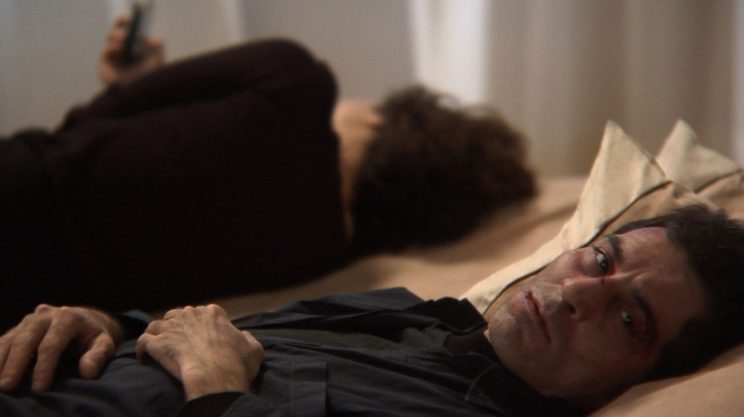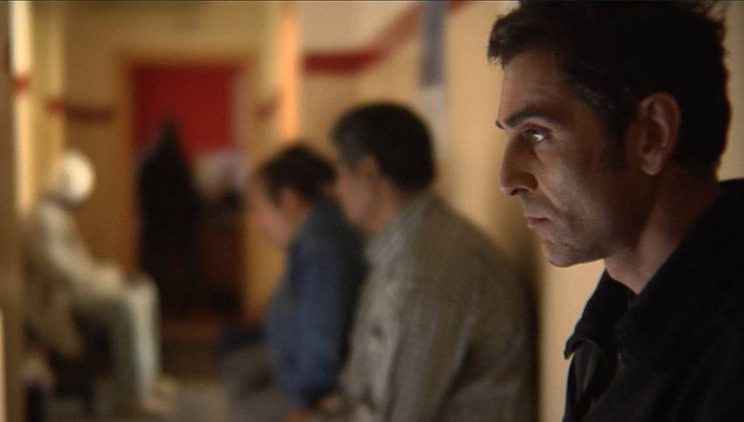A review of Thanos Anastopoulos’ 2007 drama, Correction (Diorthosi – original Greek title).
Quietness is prominent in Thanos Anastopoulos’ 2007 drama Correction (Diorthosi – original Greek title). With its sparse dialogue and omission of a score (any non-diegetic sound for that matter until the very end), Correction may be quiet, but it manages to say all it needs to say.
Yorgos, a man in his thirties, is released from prison on parole. Upon release he is slowly trying to reclaim his life; to find a place to live, to find a job and to reconnect with those he has become distant from. However Yorgos is still being haunted by his past and a crime that is not revealed to us until the final act. Correction is a slow burner of a plot that relies on it’s enigmatic core to build intrigue and emotion.
At the thematic heart of Correction is xenophobia and cross-cultural tensions, a theme that is in abundance in cinema from the Balkans. However instead of being portrayed with a hack-hand, Anastopoulos deals with the tensions with a delicate touch, subtlety using football hooliganism to portray the difficulties between Greece and Albania. Sometimes political themes become lost when visited some time after it has been made, however almost a decade after its initial release when the migrant crisis is at a high, the subject matter still remains fresh for audiences today and still manages to pack an emotional punch.
Stylistically Correction is simple, yet that is not a criticism. Anastopoulous himself has said that it is almost a documentary film (or could be), right until the very end. Anastopoulous believing that there is “no real solution in the real life” brings release to the audience though cinema. The final scene breaks the stylistic consistent of the film – social realist style camera work and silence is swapped for a sweeping crane shot and music, which subverts the audience back into the cinematic world.
Part of Correction‘s understatement and more wide appeal is the setting. We are never explicitly told that the world of Correction is inhabited in the Greek capital of Athens. Rather than featuring famous landmarks or cosmopolitan areas of the capital, Correction takes place in the gritty “underbelly” of the city (something that seems to be common within Balkan cinema). We are in the world of concrete mazes and claustrophobic city life; an anonymous place, synonymous with anywhere.
The subtlety of Correction , though down to it’s gentle direction and touch, would not be as convincing for it wasn’t of the skill of it’s performers. Correction was Giorgos Symeonidis’, a big theater actor in Greece, first feature film in which he uses theatrical skills such as expressive faces and improvisation to expand on the almost silent character and to be emotive and engaging throughout.
Correction is undoubtedly a Greek film dealing with 3 big issues in Greek society of national pride, family and religion. Yet it’s universal appeal also lies with these issues. Stories on cross-cultural tensions have been hugely common over the past decade throughout not only Balkan cinema but also world cinema, and though Correction may seem to be a timid account of such issues 10 years later, this quiet films manages to shout a lot.

